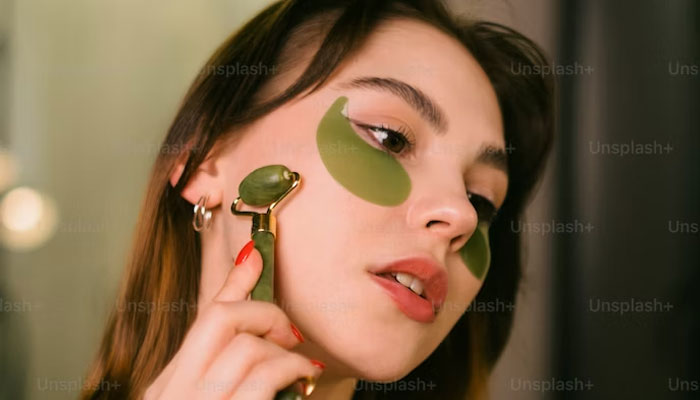Is Ayurvedic skincare making a comeback this year?
Research suggests rising demand for Ayurvedic beauty products due to the use of natural ingredients
As the fascination with Japanese and Korean skincare lessons diminished, a new interest emerged in the realm of Indian beauty, particularly Ayurvedic skincare.
Ayurvedic medicine, an ancient philosophy aimed at restoring balance to mind, body, and spirit, has gained tremendous popularity worldwide. Research indicates an increasing demand for Ayurvedic beauty products, as more consumers seek out natural ingredients and revitalizing rituals.
The journey into Ayurvedic skincare begins with the discovery of Forest Essentials, a highly acclaimed luxury brand in India. Founded by Mira Kulkarni, the brand gained prominence through her meticulous handcrafting of soaps.
The allure of their vibrant packaging immediately captures attention. Moreover, the authentic scents evoke memories of visits to the spice markets in Delhi and the mystical, mist-covered landscapes of Darjeeling.
The Ayurvedic products are infused with sweet almond oil along with date extract, known for its antioxidant and soothing properties, and litchi (lychee) extract that open your eyes to their efficacy to enhance radiance.
Additionally, fenugreek seed which is another major part of the Ayurvedic trend provides anti-inflammatory benefits such as luxuriously smooth skin, especially when it is applied at night.
Kulkarni emphasises the belief that "skin is alive," and beauty products should be crafted from "living" substances. Ideally, fresh concoctions using seasonal ingredients and ancient recipes would be prepared.
However, in our fast-paced world, Forest Essentials offers the next best option. Their products incorporate sun-dried herbs, peak-potency hand-pounded flowers and blends inspired by ancient Sanskrit treatises.
In essence, Ayurveda revolves around the concept of five elements: air, water, space, earth, and fire.
These elements interact, giving rise to three "doshas" or life forces within the body: vata (air and space), pitta (fire and water), and Kapha (water and earth). Ayurvedic practice suggests that each individual leans towards a dominant dosha, shaping their character and constitution, which indicates the best approaches for their well-being.
Regarding skincare, vata skin types tend to be dry, rough, and prone to premature aging, benefiting from regular deep nourishment and hydration.
Pitta skin, on the other hand, is susceptible to warmth and redness, thus responding well to cooling, anti-inflammatory ingredients.
Kapha skin often presents as oily and lackluster, requiring purifying products for effective remedies.
Understanding one's dosha can guide product choices, but according to Kulkarni, it's not essential to begin a self-care routine. Simply tuning into how the skin looks and feels will serve as a guide.
Ayurveda offers a wonderful journey of discovery, transcending generations and cultures, and providing a profound philosophy for holistic well-being.
-
Martha Stewart on surviving rigorous times amid upcoming memoir release
-
18-month old on life-saving medication returned to ICE detention
-
Cardi B says THIS about Bad Bunny's Grammy statement
-
Chicago child, 8, dead after 'months of abuse, starvation', two arrested
-
Funeral home owner sentenced to 40 years for selling corpses, faking ashes
-
Australia’s Liberal-National coalition reunites after brief split over hate laws
-
Savannah Guthrie addresses ransom demands made by her mother Nancy's kidnappers
-
Washington Post CEO William Lewis resigns after sweeping layoffs












